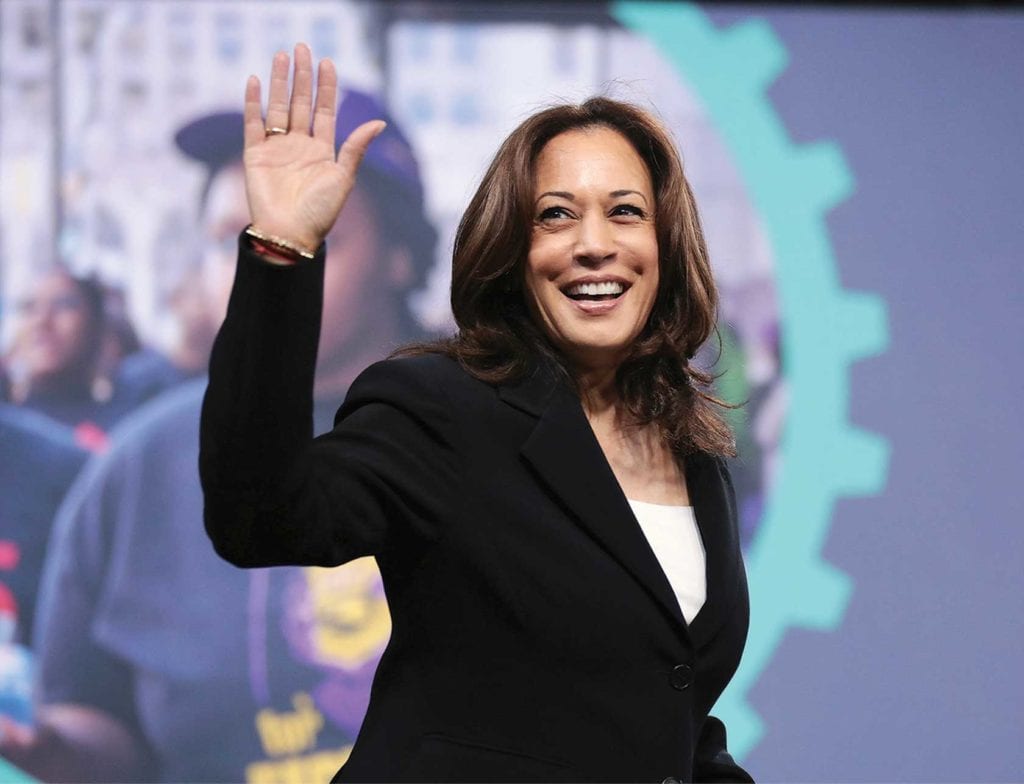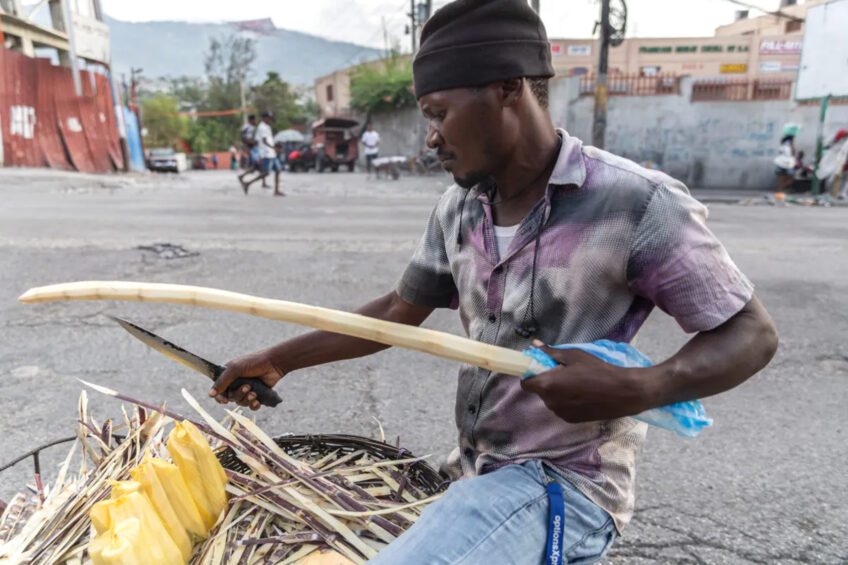Kamala in spotlight as Biden VP choice
Biden’s pick of California senator a nod to the importance of black voters

Kamala Harris has already made history as America’s first woman of color on a major party presidential ticket.
As Democrats meet this week around smartphones in a virtual convention, the party aims to turn the daughter of a Jamaican father and South Asian mother into the nation’s first female vice president as well. Not to mention the first graduate of a historically Black college — Howard University — to be one heartbeat away from serving as commander in chief.
The California senator and former state attorney general emerged as Joe Biden’s choice after a drawn-out vetting process that began with the former vice president flatly declaring his intention to name a woman as his running mate.
African American voters immediately pushed for a Black woman. After all, it was support from the party’s most loyal constituency that rescued Biden’s faltering campaign with overwhelming backing as the primary calendar turned from the snow and cold of Iowa and New Hampshire to Southern states.
In spite of sharp exchanges with Biden during her own ill-fated presidential run, Harris came out on top or near the top on most every speculative list of possible running mates. Her friendship with Beau Biden, the late son of the Democratic nominee and former Delaware attorney general, figured prominently in her selection.
“This is a moment of real consequence for America,” said Harris, 55, in her first joint appearance with Biden the morning after her selection became public. “Our economy, our health, our kids, the kind of country we live in – it’s all on the line.”
Introducing his running mate during the socially-distanced event in a high school gym in his hometown of Wilmington, Delaware, Biden emphasized both Harris’ credentials and the history-making nature of her appearance on a national ticket.
“I have no doubt I picked the right person to join me. Kamala knows how to govern. She knows how to make the hard calls. She’s ready to do this job on day one,” said Biden.
“This morning, all across the nation, little girls woke up, especially little Black and brown girls, who so often feel overlooked and undervalued in their communities,” he said. “But today just maybe they’re seeing themselves for the first time in a new way.”
President Donald Trump didn’t take long to strike out at the newly minted running mate, reviving the birtherism canard he used to paint President Barack Obama as an illegitimate president. While falsely questioning her U.S. birth, he also attacked her as a radical, saying Biden’s choice reflects “the leftist takeover of Joe Biden and the entire Democratic Party.”
The GOP attack line, however, runs counter to other criticisms of Harris as a crusading prosecutor during her tenure as San Francisco’s district attorney and the Golden State’s chief law enforcer. Harris saw progressive and Black support slipping away during the primary campaign as her record of pushing tough sentences, resisting reviews of controversial cases and going after parents of truant students came under scrutiny.
Her tough courtroom mien catapulted Harris to national attention in her grilling of Supreme Court nominee Brett Kavanagh during his nomination hearings — just one of many Republicans, including Attorney General William Barr, to squirm in the witness seat under Harris’ lethally cool cross-examination.
While progressives may continue to fret over her prosecutorial past, the Biden team sees her experience as a campaign asset that appeals to more moderate voters the Democrats need to win in order to defeat Trump in key swing states like Pennsylvania, Michigan, Wisconsin and Ohio. Those battleground states have large numbers of Black voters the campaign is hoping are inspired by Harris to turn out in large numbers along with moderate whites who largely pulled the lever for Trump in 2016.
Biden’s choice of Harris over 10 other finalists came at the culmination of a long public selection process shaped in large part by the explosive global reactions to the killing of George Floyd by a Minneapolis police officer. Issues around racial justice, social equity and criminal justice reform moved to the forefront of the national conversation after Floyd’s death, which sparked continuing Black Lives Matter demonstrations across the country.
White prospective running mates like U.S. Sen. Amy Klobuchar took themselves out of the running. In the end, Massachusetts U.S. Sen. Elizabeth Warren stood as one of the few white hopefuls to make the final cut. Biden had a close relationship with former National Security Council adviser Susan Rice, but Harris’ national brand, proven fundraising ability, electoral experience and, importantly, her relationship with Beau Biden, gave her the advantage.
Harris, elected to the Senate in 2016, was just 8 years old when Biden, 77, won his first term on Capitol Hill. Like Barack Obama when he was elected president in 2008, Harris has yet to serve a full term in the Senate and has limited experience in foreign policy and global economics.
Born in Oakland, California, Harris is the daughter of Donald J. Harris, a Stanford University economics professor who arrived in the U.S. from Jamaica in 1961 for graduate study at the University of California at Berkeley. Her mother, the late Shymala Goplan, moved to the U.S. from India in 1959 to study biology at Berkeley, where she met her future husband.
They had two children, Kamala (which means “lotus”) and Maya, before divorcing. Harris spent her early years in the predominantly Black neighborhood of West Oakland and was bused under a desegregation plan to a school in northern Berkeley that had been 95 percent white. Her experience was the fuel she lit when criticizing Biden in the first Democratic primary debate for his opposition to forced busing — a heated exchange for which Biden later said he harbored no hard feelings.
As a child, Harris visited her mother’s family in Chennai, India, and her father’s family in Jamaica. She attended a French-speaking middle school in Montreal, Quebec, where she moved with her sister after their mother accepted a teaching position at McGill University. After graduation from a Montreal high school, she attended Howard University, graduating in 1986 with a degree in political science and economics.
She moved back to California to get a law degree from the University of California’s Hastings College of Law in Berkeley, where she was president of the Black Law Students Association. Her climb up the political ladder began after a stint as a deputy district attorney in Alameda County. She received appointments to several state boards from California Assembly Speaker Willie Brown — a political mentor as well as an intimate friend — and in 2004 won election as San Francisco’s district attorney, defeating her former boss, incumbent Terence Hallinan, in the process.
In 2010, after a two-year campaign, she was elected as California’s attorney general and six years later succeeded retiring Barbara Boxer to the U.S. Senate.
Harris is married to attorney Douglas Emhoff and is stepmother to his two children from a previous marriage. If elected, she would also make history as the first partner in an interracial marriage to become vice president.
As a child, Harris attended religious services in both Hindu temples and Christian churches. She is a member of the Third Baptist Church of San Francisco.






